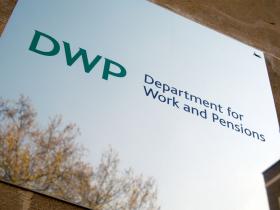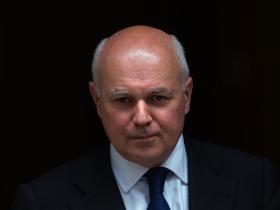Read more
Disabled DWP staff report increased discrimination in the workplace
The Department for Work and Pensions has been criticised for an increase in the number of its own staff reporting discrimination on the grounds of disability.
More than 1,400 civil servants working for the DWP said they had experienced discrimination, harassment or bullying on the grounds of a disability, according to the department's latest staff survey - up from just over 1,000 reported in the same survey in 2014.
ADVERTISING
The survey shows a 23 per cent increase in one year in the proportion of staff reporting such discrimination and have led to calls for the department, which leads government efforts to tackle discrimination at work, to "sort out its own housekeeping".
The minister for disabled people, Justin Tomlinson, has not responded to the findings, and DWP officials have played them down, pointing out that the percentage of all respondents to the DWP staff survey who reported discrimination on grounds of disability has risen from 1.91 per cent in 2014 and 2.36 per cent in 2015.
A DWP spokesperson said it would be "overly simplistic" to interpret the survey as "reflecting an increase in these incidents". "The figures are in part a reflection of the work we have been doing to encourage more people to come forward and raise awareness in this important area," the spokesperson said.
But Mark Serwotka, general secretary of the Public and Commercial Services Union, which represents civil servants, warned against complacency, and Baroness Campbell, the disabled crossbench peer, said the findings were "very worrying".
Although more people - 61,019 - responded to 2015's survey than in 2014, when 54,426 responded, the proportion reporting disability discrimination was higher. There were also more reports of discrimination on the grounds of disability than for gender, ethnic background or age.
The DWP is currently encouraging employers to increase their understanding of disability and to remove barriers to disabled people getting promoted at work, through the Disability Confident campaign.
Baroness Campbell told the Disability News Service that the Government needed to dig into figures on its own staff to "understand more about the complexities that prevent disabled people entering employment".
"The DWP needs to sort out its own housekeeping, otherwise how can they possibly lead by example on the Disability Confident campaign?" she said.
Mr Serwotka said: "It is shocking that the DWP, which is responsible for promoting disability awareness and inclusion in employment, treats its own staff so badly. One of our key concerns about the staff survey in previous years has been that findings are all too often ignored, but ministers and senior officials must act on these results."
Iain Duncan Smith's department is already under fire for plans to cut the benefits of thousands of disabled and long-term ill people receiving employment support allowance. Disabled people in the "work-related activity group" - those classified by assessors as being likely to be able to work in the future - will lose £120 a month in support, in proposed cuts expected to save £640m by 2020-21.
A DWP spokesperson said: "Any form of bullying, harassment or discrimination is unacceptable and where formally reported it will be dealt with in the strongest possible way.
"It would be overly simplistic to interpret the People Survey findings as reflecting an increase in these incidents."


